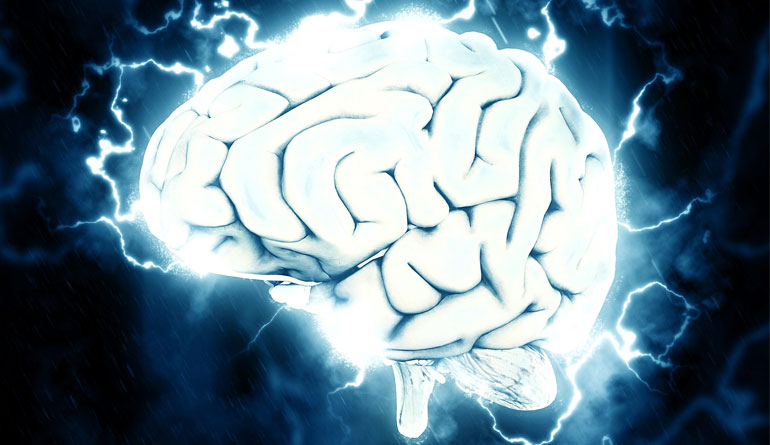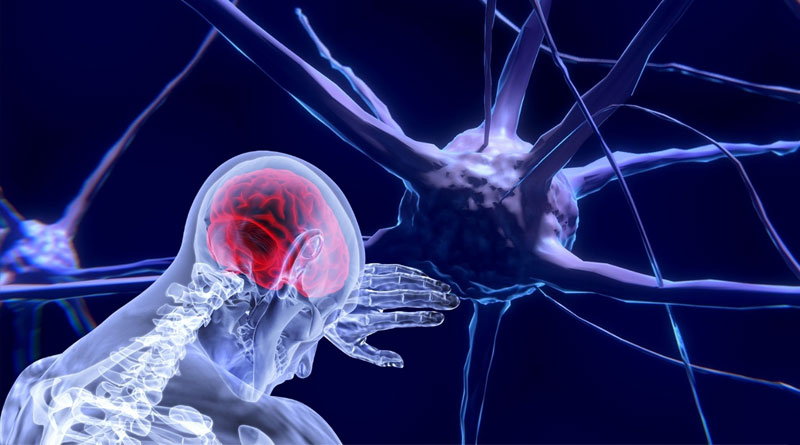Muscle ticks or twitches can be quite annoying. Fortunately, they are almost always harmless and usually disappear on their own. They occur because of a disconnection of messages sent between the brain and a muscle fibre. The brain sends electric signals to the rest of the body via the central nervous system. When the brain sends a message that does not seem to reach a muscle fibre, or if a muscle fibre is unable to let the brain know that it has moved the way that it was supposed to, rapid and repeated movements can take place until the disconnection is resolved. Most of the time, this happens in a single muscle fibre that has lost its electric connection to the rest of the central nervous system – although it can also occur in an entire muscle. It is very similar to the way that an electric fence makes that ticking sound when there is a minor electrical issue somewhere along the circuitry. Twitches are very common and are generally of no health concern.
Please note: This article does not replace, substitute or supplement medical advice in any way. If you feel like you are experiencing any physical problems, please consult with your medical practitioner immediately.
What causes ticks and twitches?
There could be a variety of reasons why you experience these ticks. I will examine the most common causes, which you can use to identify what might be going wrong and help you to correct it.
1) Stress

Stress is said to be the biggest cause of muscle ticks and twitches. People report to have twitches most often when they are in stressful a situation. This happens because of the disconnection between how your body responds to stress and what you physically do during a stressful situation.
When your brain senses stress, it anticipates a dangerous environment and releases a hormone called cortisol. This hormone is used to prime the body for high levels of energy to escape the potential threat – or to fight it off (the fight or flight response). In most stressful situations, we try to calm ourselves down so that we can deal with the task at hand or cope with the situation.
Our body can then get mixed up between two opposing types of messages – cortisol is telling your body to release energy and escape the danger quickly, while we are mentally trying to relax and suppress the surge in energy. This is the same reason why stress can lead to muscle tension. Cortisol tenses the muscle to get it ready for exertion, while we try to relax it without exerting it at all. A twitch, therefore, can result from the muscle fibre still being in ‘go mode’ while the rest of your body has managed to relax.
Exercise is a great way to reduce the twitch-inducing effects of stress. This is because exercise will give muscles and connective tissue the physical exertion that they have been anticipating. This, in turn, will give your body the sense that the danger has passed and that it can go back into a relaxed state of rest and recovery. Releasing pent up energy caused by stress is one of the main reasons why exercise increases sleep quality.
2) Dehydration

Dehydration is another common cause of muscle ticks and twitches. The body relies on the central nervous system to convey information about when and where muscle should move. These messages are sent via a complex network of nerves that are spread out throughout the muscles, joints, spinal column and brain. Another network, the bloodstream, is responsible for delivering nutrients to all of these areas. Without enough blood flow; lack of important nutrients (like oxygen, protein and energy), along with the build-up of by-products that can accumulate (like lactic acid, carbon dioxide and free radicals), will reduce tissue function. One of the important functions that can be affected by dehydration is cell signalling, messaging and nerve-to-nerve communication.
Water is needed to clear out tissue debris and deliver what they need to keep the body’s electrical circuit in good condition. Insufficient water intake is similar to allowing debris to accumulate in an electric box and cause the blockage that can result in the ticking sound that one hears in an electric fence.
3) Lack of electrolytes

Your body needs electrolytes like sodium, potassium, chloride, calcium, magnesium and phosphorus to hold onto its water stores. Without it, water will run through your system without circulating through tissue to remove waster products and deliver nutrients. This is why sodium is so closely related to blood pressure. Too much of it makes your body hold onto too much water, while too little of it reduces water content, and therefore, blood volume. Blood pressure that is either too high or too low will reduce blood circulation. When blood pressure is too high, there is too much blood to move freely throughout the body. When it is too low, there isn’t enough blood to go around.
Electrolytes also carry an electric charge (hence the name). Your body relies on these electric charges to tell a muscle fibre when to contract and when to relax. For example, cell signalling cannot take place without calcium. Phosphorus is needed to make ATP (adenosine triphosphate) – the energy needed to turn signals into movement. Potassium balances out electrolyte levels in the bloodstream and muscle tissue. Chlorine maintains the correct acid-to-base ratio. Magnesium optimises muscle function.
To make sure that your body gets all of the electrolytes that it needs (while not getting too much of them at the same time), eat a healthy diet and that balanced with carbohydrates, fats, proteins, and fruit and vegetables. By eating too much of a single type of food, your body will get too much of one nutrient and too little of another. If you follow a typical western diet, adding foods that you usually don’t eat like leafy greens to your daily food intake will increase the amount electrolytes that most people in the western world don’t have enough of. Leafy greens, for example, are good sources of magnesium and calcium.
4) Too much or too little exercise

Exercise directly affects the central nervous system. It stimulates the nervous system to strengthen its electrical signalling between different sets of nerves. Since twitches and ticks are miss-connections, a healthy central nervous system will be able to correct these minor faults quickly. A hampered central nervous system will not be able to correct these problems fast enough, leading muscle ticks that are strong enough to gain our attention, and eventually strong enough to become visible to the naked eye (it often looks like a small portion of your skin is jumping). Our bodies are constantly correcting issues within itself. The rate at which it can correct these issues depends on its health and fitness level.
Exercise places a physical stress on the nerves in muscle tissue. The central nervous system responds to this stress by strengthening nerve connectivity. Lack of exercise removes the stimulus, and therefore eliminates the action of strengthened nerves.
On the other hand, it is possible to place more physical stress on the nervous system than what it can recover from. When this happens, the nerves can start to malfunction. Just like the rest of our body and brain functions, our nerves need the right balance between stimulus and recovery to strengthen its function.
5) Lack of quality sleep

Sleep is an important state where the body can recover and perform maintenance tasks. The two most useful stages of sleep are REM (rapid eye movement) and deep sleep. REM sleep allows the brain to recover and consolidate its memories and emotions. This is the stage of sleep where we dream. Deep sleep is the stage of sleep where physical repair and maintenance takes place. During deep sleep, the body responds to the physical stimulus placed on it during the day by repairing minor damages and making itself stronger so that less damage is caused in the future. Without enough quality sleep, your body cannot heal itself and adapt to your daily routine. REM sleep is needed to reduce the effects of mental stress, while deep sleep repairs the central nervous system.
If you struggle to get enough high quality sleep, you can:
- Make more time to sleep (it is recommended that the average adult gets 7-9 hours of sleep every night)
- Do something that relaxes you before bed time. This primes your body for rest and deep restoration. Doing something that you enjoy will also help to shuttle out the effects of stress that can keep you up at night. Reading a book, writing on paper, meditating or praying is are good examples.
- Avoid screens for at least two hours before you plan to fall asleep. The blue light emitted by televisions, mobiles and computers trick our brains into thinking that it is still day time.
- Get rid of things that are stressing you out before you sleep. Writing in a journal is an effective method for coming to terms with issues before you need to relax.
- Breathe deeply and allow oxygen to ease tension, while allowing sleep-inducing hormones like melatonin to take full effect.
Those annoying ticks that you feel in your eye lid, hands, legs or arms are probably not of medical concern; but by making healthier life choices, you can help your body to function better and take care of these twitches by itself. If you experience twitches that inhibit normal tasks like focus, work or social interactions, consult your medical practitioner. You should also consult your medical practitioner if these ticks last longer than 48 hours. This article in no way aims to replace or supplement medical advice from a registered medical practitioner.
About Saguren
This article was written by Saguren Redyrs, editor of the health and fitness website SA Spotters. You can check out his site here. He has written extensively on exercise, nutrition, sleep and how making small changes can impact overall health in a lasting way.


![A Better [Buy Now] Button | Call-to-Action Tips & Tricks](https://www.bleepingworld.com/wp-content/uploads/2019/11/A-Better-Buy-Now-Button-Call-to-Action-Tips-Tricks-800x445.jpg)

